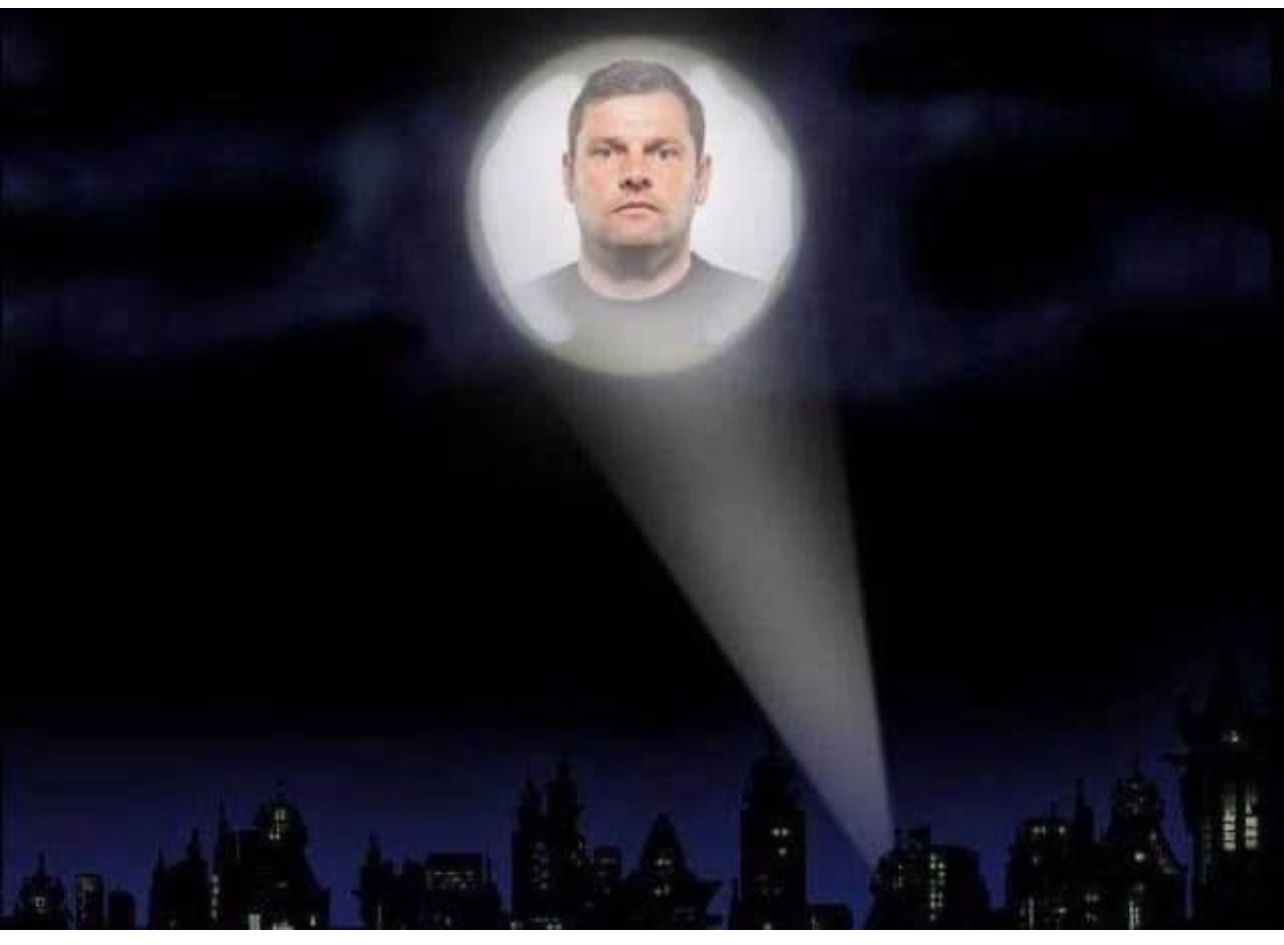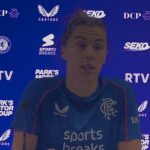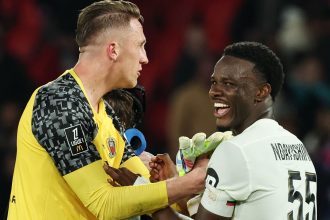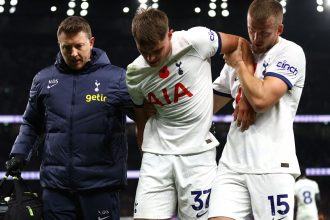By David Herd
Steven Davis is the man who has been given the difficult job of picking up the pieces from the Michael Beale reign, with the Hall of Fame midfielder and lifetime fan now adding Caretaker Manager to his list of Rangers achievements. With 371 first-team appearances for the club over two spells between 2008 and 2022, the Northern Ireland international certainly knows the club inside out, and will be a popular choice amongst the supporters as he looks to steady a ship that has suffered from a lack of direction for too long.
Davis has enjoyed a stellar career in the royal blue at Ibrox, a man who is in a very elite band of Rangers heroes who have won titles at the club and scored in Old Firm matches in three different decades. Alongside this vast experience of the unique pressures of life at Rangers, Davis has enjoyed a magnificent international career with a British record 140 caps for his country, as well as appearing in over 300 games in the English Premier League in his career down south. If anyone inside the club could claim to have top-level football experience, it is Steven Davis.
Most Read on FollowFollow.com The FollowFollow.com Friday Preview – Hearts at Home Dessers Departs – A look back at Cyriel In The Eye Of The Storm – Rangers 0-0 Celtic
But the role of manager is still very different to anything he will have done before, and he joins a list of the great, the good, and the not-so-good who have been given the title of Rangers Caretaker Manager in the past. It’s a job that might be viewed as having little to lose with the occupant rarely seen as a candidate for the permanent position, and going by the record of those who have gone before, maybe it’s just as well the temporary boss isn’t rehearsing for the real thing. No doubt there are many good reasons for it, most notably the simple fact that caretakers tend to be given the job because the team is playing badly and losing too many games. Here is a quick summary of all the previous Rangers caretaker managers, and their record while keeping the dugout warm until the new man is appointed.
For a club who appointed their first-ever manager away back in 1899, it’s perhaps a surprise that the first time Rangers announced a caretaker manager was in 1969, after the sacking of Davie White following a dismal home loss to the Polish side Gornik at Ibrox. White had been just the fourth-ever Rangers manager, his sacking coming at a time when Celtic were dominating the domestic trophies with their best ever team. When announcing his removal, club chairman John Lawrence also confirmed that Willie Thornton, the club’s Assistant Manager would take temporary charge on a caretaker basis until an appointment could be confirmed.
Thornton had been one of the greatest centre forwards in the club’s illustrious history, and he also won titles in three decades and scored against Celtic in each of them. He took charge of the team for the Ibrox league encounter with Raith Rovers two days later, on Saturday November 29th 1969. Rangers won 3-0, with the goals scored by three players who would go on to immortality in Barcelona less than three years later. Willie Johnston, Colin Stein and Alex MacDonald were the scorers, the latter two both being White signings.
Willie Thornton took charge for just one more match, another excellent win this time at Tynecastle against Hearts. When Willie Waddell then took over, his old teammate had the perfect caretaker record. He remains the only man who can make that claim.
The next two managerial handovers were in-house affairs at the end of a season without the need for a caretaker, Waddell to Wallace then Wallace to Greig. The “Greatest Ranger” couldn’t emulate his success as a captain when in the manager’s office, and in October 1983 he resigned. The hunt for a successor took a few weeks, as Alex Ferguson and then Jim McLean seemed destined for Ibrox before deciding to stay in the north east, and while this managerial tug-of-war was going on, Rangers put Greig’s assistant in temporary charge. His former teammate, and fellow Barcelona Bear Tommy McLean became caretaker. His brief spell in charge was not a happy time. Just 24 hours after Greig’s departure, McLean took the team down the motorway for the short trip to Paisley, and watched on in horror as St Mirren comprehensively outplayed a Rangers team containing the likes of Bobby Russell, Ally McCoist and Davie Cooper 3-0. McLean would stay in charge for another fortnight, suffering further painful defeats in Europe to FC Porto then a home loss to Celtic. His final match in charge before the return of Jock Wallace to the club was his only win, a 3-0 success at Clydebank in the League Cup with both McCoist and Cooper scoring.
Wallace was unable to recreate his successes first time round, and by 1986 Rangers were in a dreadful state as they slumped towards the only season in their history where they lost more league games than they won. In early April, the club made an announcement that sent shock waves around Scottish football. Wallace had been removed, and in his place would be the club’s first ever player-manager, the Scotland international team captain Graeme Souness. The new boss was unable to start his job for a few weeks, however, as he had to see out his playing contract at Italian club Sampdoria, and this meant the Rangers team would need two different caretaker managers during that brief time.
First, Wallace’s assistant manager Alex Totten stayed on to take charge for one match. He was unable to reverse the team’s rotten form as his only match in charge ended in a 2-1 loss at Clydebank. By the following week, the man Souness had appointed as his assistant had arrived at the club, and he took temporary charge with Totten now gone. Walter Smith had been Jim McLean’s Number Two at Tannadice, and must have thought his chance of going to his boyhood team had gone when McLean had refused the move three years earlier. Now he was finally at Ibrox, and Smith had two matches as caretaker before his new boss arrived.
Smith’s first match in temporary charge was at Paisley, and he made several changes, most notably bringing back veterans Peter McCloy and Derek Johnstone. It made little difference as St Mirren won 2-1. He then had one last match in temporary charge before Sampdoria could allow Souness to return to Scotland, and it was a fixture Rangers had a terrible record in. A trip to Pittodrie to face an Aberdeen team under Alex Ferguson who had inflicted many painful defeats over Rangers in the previous few years. Few gave Rangers any chance, but Smith gave a glimpse of the future as his team earned a point in a hard-fought 1-1 draw. Smith was really in charge for the last match of the season against Motherwell too, a game Rangers won 2-0, but Souness was officially listed as the manager as he was now installed in the manager’s office, although he would later admit that he took little to do with the team selection or tactics on the day, preferring to observe his new charges.
Smith would go on to earn managerial immortality at the club over two spells, and it was before the second of these spells that the next Rangers caretaker was needed. In the summer of 2006, Rangers fans had been excited to learn that highly-rated French manager Paul Le Guen would replace the outgoing Alex McLeish. After a barren season, McLeish had agreed to depart at the end of the 2005/06 campaign, with the fans grateful for several memorable trophy successes during his tenure that followed other trophy-laden managerial spells for Smith and Dick Advocaat.
Le Guen’s short time in charge was also memorable, but for all the wrong reasons. Poor results on the pitch, dressing room disharmony, and fan unrest all combined to see him resign in January 2007. The man who would replace him was to be the returning Walter Smith, who would leave his post as Scotland international boss to return home to the club he loved. There was to be one match played before Smith and his international assistant Ally McCoist could sit again in the Ibrox dugout. A Scottish Cup tie at Dunfermline had to be navigated, with future first team coach Ian Durrant the man to take charge for just this one game. Durrant’s match as caretaker could hardly have been worse. He looked on in horror as the hapless defence that Le Guen had created gifted goals to a Dunfermline side who could hardly believe their luck. They raced to a 3-0 lead, and despite Durrant making early substitutions and seeing Kris Boyd score two opportunist goals, Rangers crashed out 3-2 to end any chance of a trophy that season.
Durrant would be the last caretaker prior to the financial and football Armageddon of 2012, when the club were reduced to playing in the lowest league of Scottish senior football. Ally McCoist was now the manager, and despite holding things together off the pitch in unprecedented times, he found it increasingly difficult to create any sort of decent team on the park for the loyal supporters to watch. Season 2014/15 in The Championship was probably the worst season of them all, with Rangers unable to match Hearts at the top of the second tier, and a succession of charlatans in the boardroom dragging the club down to the abyss. McCoist resigned in December 2014, a man ageing before our eyes. Into his shoes stepped a caretaker who made it obvious he didn’t want to be there either.
Kenny McDowell had wanted to leave along with McCoist, but was persuaded to stay on and take over the first team on a temporary basis. His time in charge saw Rangers go even lower than we thought possible. His first game set the tone, a meek and gutless 4-0 hammering from Hibs at Easter Road. McDowell would stay in the role for ten matches, winning just three of them, as the fans deserted the stands and the team seemed to give up the ghost. It’s hard to decide what capitulation was worse in this run of torture. There was another humiliation from Hibs, this time at Ibrox. There was a League Cup semi-final defeat to Celtic at Hampden where the support left the stadium relieved that Celtic had decided not to break sweat rather than pile in the goals. There was a home defeat in the Scottish Cup to Raith Rovers. And there was a dire 0-0 draw away to a Cowdenbeath team stranded at the bottom of the league and who had lost 10-0 the week before.
By early March 2015, salvation for the fans was finally at hand, as the spivs in the boardroom were chased away by Dave King and his colleagues, and the new regime quickly put McDowell out of his touchline misery by appointing a new caretaker manager, the 9-in-a-row midfield legend and former Motherwell boss Stuart McCall. He at least brought some pride back into the team, only losing once in the eleven remaining league games. Rangers had the embarrassment of finishing third in the second tier of Scottish football, and the embarrassment wasn’t yet over. Promotion was still possible in the play-offs, and although McCall got past both Queen of the South and Hibs to reach the final, it ended in a horrendous 6-1 aggregate loss to Motherwell. The board decided to appoint fresh blood into the manager’s office at the end of the season, with Mark Warburton taking charge and McCall earning the club’s gratitude for bringing a semblance of respect back after the darkest of times.
Warburton’s reign started with some exciting performances, as his Rangers won the Championship and reached the Scottish Cup Final after matching Celtic in the semi-final before squeezing through on penalties. The horrible defeat to Hibs in the final signalled a downturn in his fortunes that was never arrested. The team were finally back in the top flight, but were no match for a Celtic team who had invested heavily in a proven manager, and within weeks it became obvious that Rangers were still some way off being challengers for honours. By February 2017, a shocking 4-1 defeat at Tynecastle, then a dismal home draw with Ross County was the last straw, and the Englishman was gone.
There was no immediate successor, so the club turned to youth team coach Graeme Murty as a caretaker while they kicked off the recruitment process. Over the next fourteen months, Murty would become the longest-serving caretaker the club has ever had. His first short spell in temporary charge started with a narrow 2-1 home win over Morton in the Scottish Cup, and ended with a thumping 6-0 Cup win over Premier League Hamilton then a creditable 1-1 draw at Parkhead on March 12th thanks to a late Clint Hill equaliser. By then, newly appointed permanent manager Pedro Caixinha had been confirmed and was watching from the stand. If Murty had only ever taken charge for this six game spell in 2016/17, he would likely be viewed as a successful stand-in.
But Caixinha was a disaster, presiding over multiple embarrassments, and his tenure was already over by the last week in October. The board again turned to Murty as a stop-gap, and initial results seemed to steady. These included back-to-back wins over Aberdeen in the space of a few days, and an unlucky 0-0 draw at Parkhead when Rangers missed a couple of glaring chances to win the match. Murty was given until the end of the season by the board, who now felt they had the luxury of taking their time to appoint the next full-time manager. Murty was even allowed to bring players in during the January window, and when Celtic came to Ibrox in early March, fans hadn’t yet given up all hope of catching their rivals at the top of the table despite the team still suffering the occasional inexplicable defeat.
It then unravelled in spectacular fashion. Celtic won 3-2 despite playing for a significant period with ten men and being behind twice. Defeat at home to Kilmarnock then confirmed the end of any lingering hopes of the title, before two absolute embarrassments at the hands of Celtic at Hampden and Parkhead with an average score of 9-0 hastened the end of Murty’s reign as he was now a figure of ridicule. He became a caretaker replaced by a caretaker, with former player Jimmy Nicholl given the responsibility for the last three games of the season as Rangers now had been overtaken by Aberdeen in second place.
Nicholl, who sat in the dugout along with another former player in Jonathan Johansson, steadied the ship with a win over Kilmarnock then two away draws at Pittodrie and Easter Road. The 5-5 draw in Edinburgh summed up the rollercoaster that was watching Rangers at this time, the point not being enough to claim second spot after Celtic surprisingly lost at home on the last day to allow Aberdeen to finish runners-up.
That defensive debacle in the capital was the last game before the Steven Gerrard era, when Rangers found their respectability again at home and abroad. With title 55 in the trophy room and his team sitting at the top of the table, Gerrard left for the EPL in November 2021 just months after those unforgettable title celebrations. Dutchman, and former Ibrox star Giovanni van Bronckhorst was quickly appointed, but not in time to take charge of the last match Rangers played with a caretaker in charge. That was the 2021/22 League Cup semi-final against Hibs, and the caretaker for that one afternoon was B team coach David McCallum.
For those old enough to remember the old TV series, a different David McCallum played The Invisible Man. Sadly, the B team version was equally invisible, as he helplessly watched the team slump to a pathetic 3-1 loss after conceding three first -half goals to Martin Boyle. The Gio reign was to give us some incredible highs, yet only last a year. His replacement has lasted even less time, and while we await the news of who will be the club’s 19th permanent manager, the honour of being temporary manager now falls to Steven Davis.
He isn’t the first great Rangers player to take temporary charge. He also isn’t the first from Northern Ireland. But let’s hope he is the first for a long time to go unbeaten in the role, and he starts the process of restoring our team to where they need to be. We are right behind him.
FULL LIST OF CARETAKER MANAGERS AND THEIR RECORDS
Willie Thornton P 2 W 2 D 0 L 0
Tommy McLean P 4 W 1 D 0 L 3
Alex Totten P 1 W 0 D 0 L 1
Walter Smith P 2 W 0 D 1 L 1
Ian Durrant P 1 W 0 D 0 L 1
Kenny McDowell P 10 W 3 D 3 L 4
Stuart McCall P 17 W 7 D 6 L 4
Graeme Murty P 35 W 21 D 3 L 11
David McCallum P 1 W 0 D 0 L 1
TOTAL P 73 W 34 D 13 L 26








